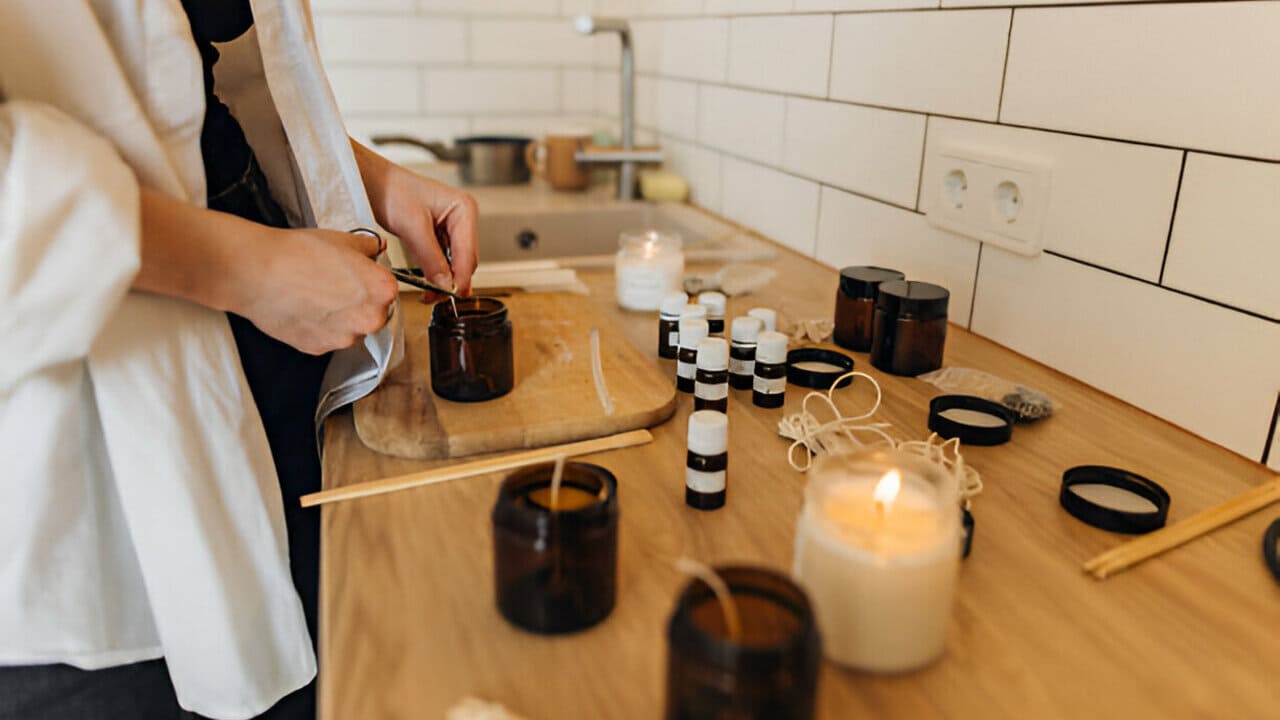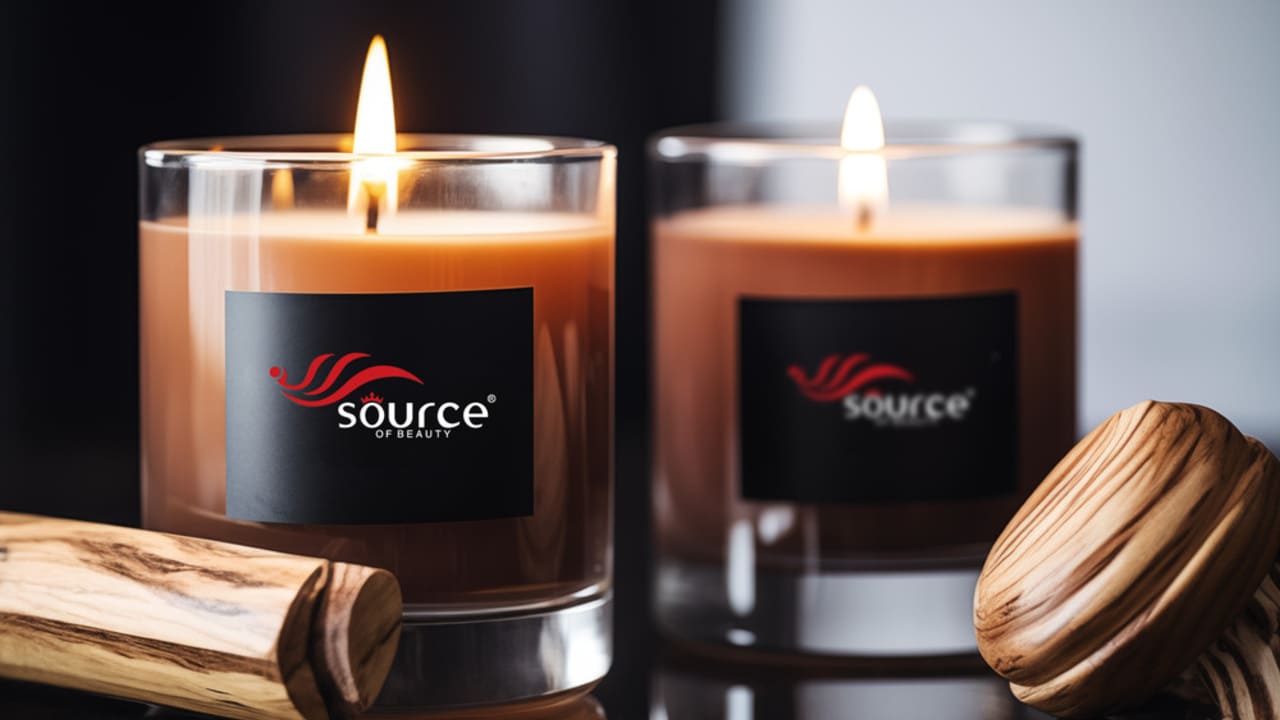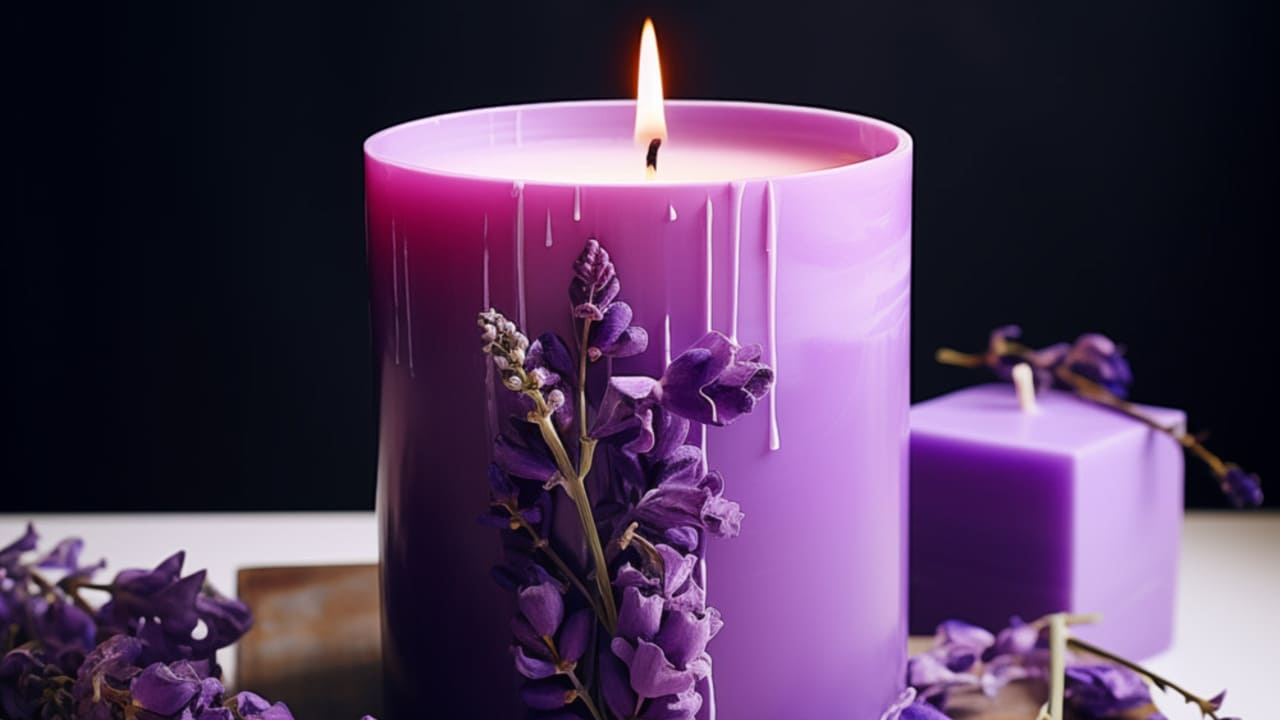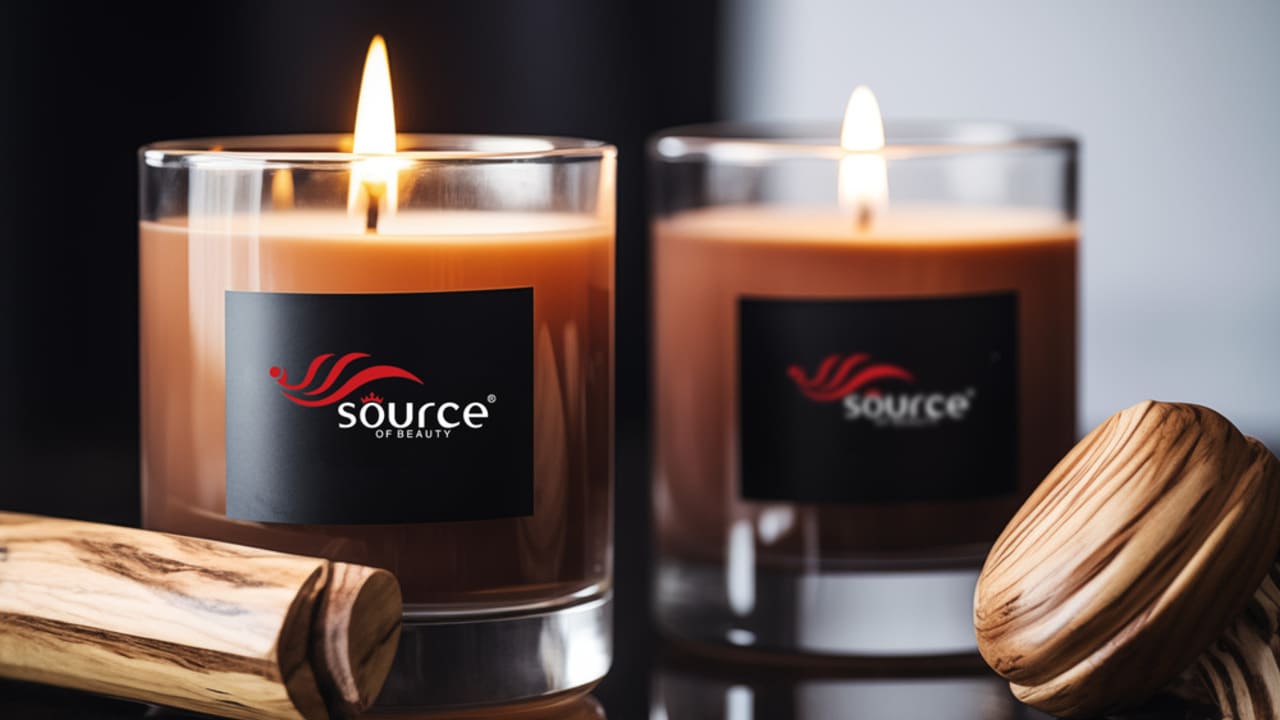Table of Contents
ToggleIs it a good idea to start a candle-selling business? Of course, it is. Candles are becoming increasingly popular, with people using them at home to provide soft light, adding to a relaxing atmosphere.
In fact, the candle business market is booming. According to Grand View Research, the global candle market is projected to be worth approximately USD 20.4 billion by 2030, assuming a CAGR of 6.4% from 2025 to 2030.
There are many reasons for this trend, proving that starting a candle business is a good idea. Here we list a few of them.
- The rising awareness about self-care and mental well-being has led to people investing in home decorating aspects like candles to help them relax.
- The candle market accommodates a wide array of candles, including scented, decorative, and specialty candles for various consumer needs.
- Candles are increasingly used for aromatherapy, driving a steady demand for candles.
- There’s a rise in spas and massage centers’ commercial use of scented candles.
- A candle-selling business has relatively low startup and operational costs.
- There’s always a surge in sales during holidays and festive seasons, boosting revenue for manufacturers, retailers, and private businesses.
These are all great incentives to induce you to start a candle business. Let’s look at the steps you need to ensure a profitable income from a candle business.
Step 1: Define Your Target Market and Find Your Niche
In order to identify your niche market to stand out from the competition, you first need to know your ideal customers and their needs. Your ideal customers are those most likely to buy your candles.
Consider demographics like age, gender, income, and location to define our target customers. You can also use market segmentation to divide them into smaller groups with shared interests.
For example, young professionals may seek stress-relief candles, while parents may prioritize non-toxic options. Do they prefer luxury fragrances or natural scents? Understanding these factors allows you to tailor products and marketing messages that resonate with consumers looking for candles.
Once you’ve identified your target audience, do market research to find your niche. Start by analyzing competitors to see what they offer and identify underserved customer groups. Also, track consumer trends in scents, packaging, and ingredients.
Popular social market platforms like Instagram and Pinterest are a goldmine of information on products currently trending.
The purpose is to uncover gaps in the market that you can fill with your products. For instance, if natural candles are trending, you could source suppliers of candles featuring soy wax and essential oils.
Choose your niche market based on the outcome of your research. Currently, the niche markets for candles are luxury, eco-friendly, personalized, seasonal, scented, aromatherapy, and votive candles.
Is a candle business profitable? Will the niche that you decide on be profitable? Your market research will probably reveal the answer. The general rule of thumb is that an evergreen market is relatively safe to enter. Evergreen markets perform great because there is always demand in those markets. In this light, it’s safe to start a candle business, especially if you go for a niche that is trending.

Step 2: Decide What You Want: A Candle Making Business or a Candle Selling Business
A crucial point to consider is whether you are starting a candle-making business or a candle-selling business.
Starting a business making candles requires you to source raw materials like wax, wicks, and fragrance oils, learn how to make candles, and how to produce them at scale. Making your own candles gives you creative control and higher profit margins but it will take more of your time and effort because you have to take responsibility for the manufacturing side of the business in addition to marketing and sales.
On the other hand, a business selling candles allows you to focus on branding, marketing, and distribution without having to worry about the complexities of production. You can source candles from private-label manufacturers or wholesalers, and quickly build a business with lower startup costs, leveraging the supplier’s capabilities.

Step 3. Devise a Candle Business Plan
If you are serious about running a candle business, you need a business plan. A well-structured plan will help you identify potential challenges, taking competitors into account. Drafting a business plan directs you to think about aspects like your goals, target market, and strategies for success.
Besides, you need a business plan for funding. Banks and investors require a solid business plan to assess profitability and potential risk before parting with their capital.

Step 4. Price Your Product
Pricing your product is crucial for business success, but it can be quite difficult to know how much to charge. If you decide to obtain your candles from a wholesaler, the price your supplier charges you will be a factor in determining your eventual asking price.
If you plan to produce your own candles, you’ll need to take your time, and the price of your raw materials, and production costs into consideration.
For a ballpark price, you can research the pricing of your competitors – it will give you an idea of the going price for similar products your candle business will compete with.
Step 5: Find a Reliable Candle Supplier
It’s important to find a candle supplier you can depend on. Look out for a manufacturer that uses premium quality raw materials, can scale production if needed, and offers private label branding services.
Why Outsourcing Manufacturing is Beneficial
Instead of spending money on equipment, materials, and labor, you can focus on branding, marketing, and sales. A qualified candle supplier ensures that products meet safety and quality standards, and has the production ability to increase production when needed. An established manufacturer will have access to premium raw materials at wholesale prices, which your business can benefit from.
Key Factors to Look For In a Supplier
The ultimate success of your candle business will depend on the supplier you choose. Look out for a supplier that:
- Has a proven record of delivering quality products, made from high-quality wax, and fragrance. oils, and wicks. Look for certifications or reviews that confirm their commitment to quality.
- Offers customization options so you can create a unique product that aligns with your vision.
- Offers minimum order quantity (MOQ), which is more suited to startup businesses.
- Offers short, reliable delivery timelines so your inventory is always stocked.

Private Labeling and Branding Opportunities
Look for a supplier that offers private labeling services. This approach allows you to sell candles under your own brand name without having to manufacture them yourself.
You collaborate with the manufacturer to design a unique product that will help your candle business stand out in the market. The manufacturer you choose should offer customization options such as exclusive fragrances for candles, specialty wax blends, eco-friendly packaging, and signature jar designs so you can tailor your products to meet the preferences of your target market.
This approach enhances brand identity, customer loyalty, and market positioning. A strong branding strategy that encompasses beautiful labels, premium packaging, compelling storytelling, and visual consistency can create a distinct presence in the market.
Partnering with a manufacturer that supports private labeling you can focus on growing your business while being assured of a steady supply of high-quality, branded products.

Step 6: Decide where to sell
If you know how to sell candles, opportunities to sell them are endless.
- You could consider opening a physical store to sell your candles. This option comes with added responsibilities and costs that can eat into your profits.
- Local gift shops may agree to stock your candles.
- Large retail chains may agree to partner with you, provided you, or your supplier can produce at scale. You have to follow their rules and quality standards.
- You can sell on online marketplaces like Etsy or Amazon. The competition on these marketplaces is stiff, though.
- You can build your own online store on an e-commerce platform like Shopify. E-commerce platforms offer many services to help businesses succeed, but this route will be costly and involve a steep learning curve. It may also take a while before your store is noticed online.
- Local markets and craft fairs are good places to sell candles. These venues are fun to sell at and profits are good, but you need to find enough of them to make it financially profitable.
- Sell subscription boxes. Subscription boxes are a growing trend whereby customers pay a monthly fee to receive a curated selection of items. This business model ensures a regular income and is easy to scale. You can start with a certain kind of candle and add new lines as your candle business grows and you develop new products.
Step 7: Market Your Candle Business
Here are some effective marketing strategies for a candle business.
Social Media
In the age of social media, the obvious place to market a product is on platforms like Instagram, Facebook, TikTok, or Pinterest. That is where many of your customers spend a lot of their time. Take professional photographs and tell your audience about your history and life with candles. Do some market research first to establish which platforms are popular with your audience. You can also partner with social influencers for authentic product reviews, but it may be costly.
Digital Marketing
Write optimized blogs all about candles and selling candles and optimize your website with relevant keywords to drive organic traffic.
Try email marketing by sending monthly newsletters with new product launches, customer reviews, special offers, and exciting plans for the future.
Craft Fairs and Farmers Markets
People love craft fairs and farmers’ markets; they are great places to find unique gifts. With a regular stall, and your products attractively exhibited, you can meet passers-by face-to-face. It’s an excellent way to make contacts and generate return customers provided you sell a top-quality product at the right price.
Collaborate with Local Businesses
Look for opportunities to collaborate with other businesses like local gift shops, spas, and interior decorators for greater exposure to your products.

Conclusion
Now you know how to start a candle business. It starts with defining your target market, finding your niche, and defining your target audience. You can decide to make your own candles or you can decide to outsource the manufacturing in which case you’ll need a reliable supplier like Source of Beauty that can consistently deliver top-quality products.
SOB is a global manufacturer and supplier of scented candles. We use fine fragrance ingredients and wax to craft our candles. When you work with us, you can depend on reasonable prices and fast delivery cycles.
Don’t think twice. Call us today to hear how we can help you start a profitable candle business.
FAQs
Is a candle business profitable?
Yes. The startup costs are low, the profit margins are high (200 – 300%) and the industry is expected to reach nearly $5 billion by 2026.
What factor influences candle sales the most?
Fragrance is the most important factor in candle sales. Essential oils provide the best results offering floral, fresh, woody, and oriental scents.
Do I need a license to sell candles?
You don’t need a specific license to sell candles, but you need a business license and you need to register your business. Consider forming a limited liability corporation (LLC) for legal protection. Check local requirements for sales tax permits and business insurance.
How much does it cost to start a candle business?
It depends on the type and scale of the business. If you buy stock from a wholesaler to resell, your starting cost will be lower than if you start making candles, but that also depends on the scale. Starting a candle business can cost between $1,000 and $5,000, depending on the type and scale of the business.
Are there any legal requirements or certifications needed to sell candles?
No, you don’t need certification to sell candles, but your candle business must follow key regulations, including:
- Product safety standards (e.g., CPSC guidelines in the U.S.)
- Accurate labeling (ingredients, warnings)
- Business licenses and permits (based on local requirements)
- Tax registration (for legal compliance)
- Insurance coverage (such as product liability)
- Zoning laws (if operating from home)

